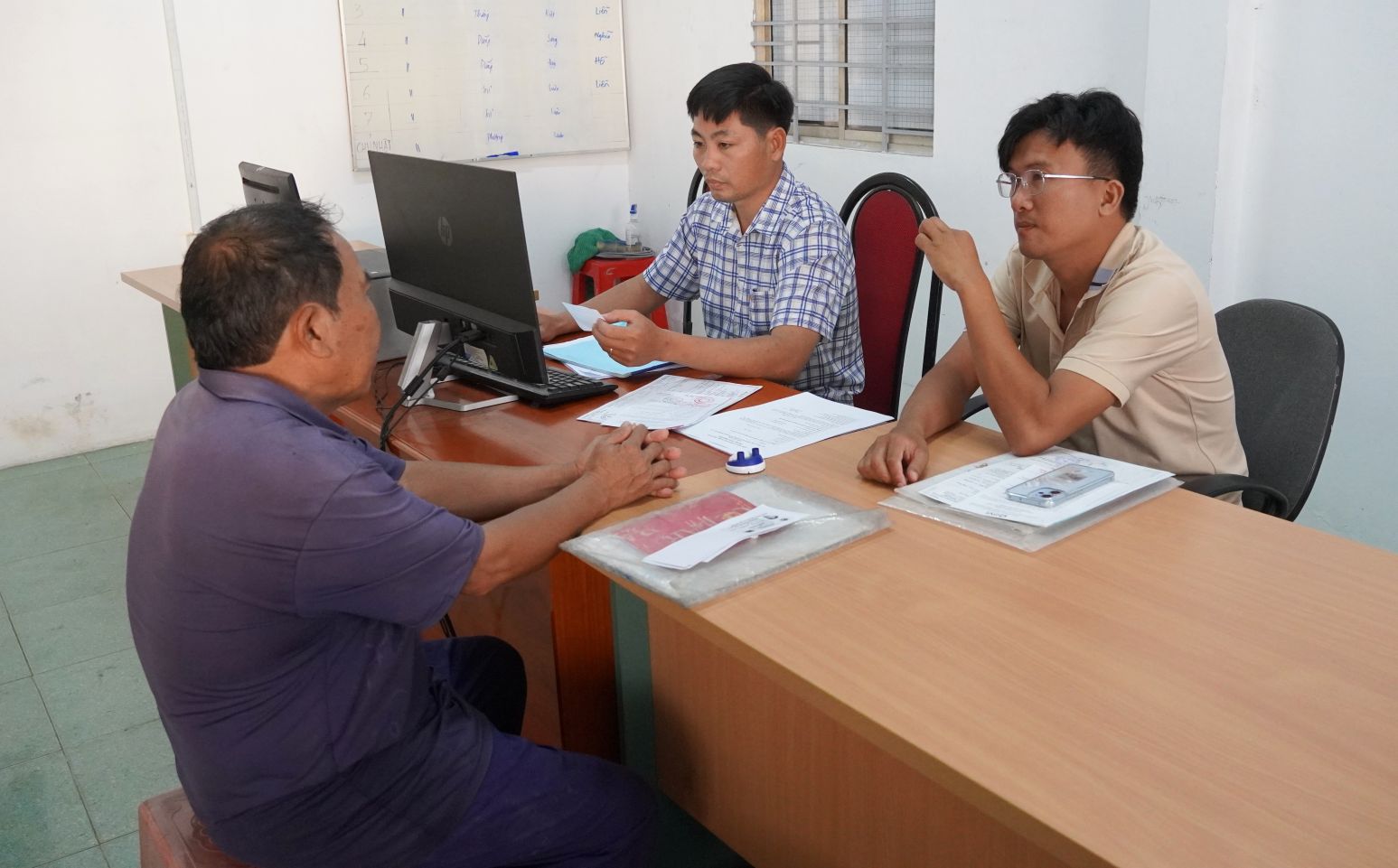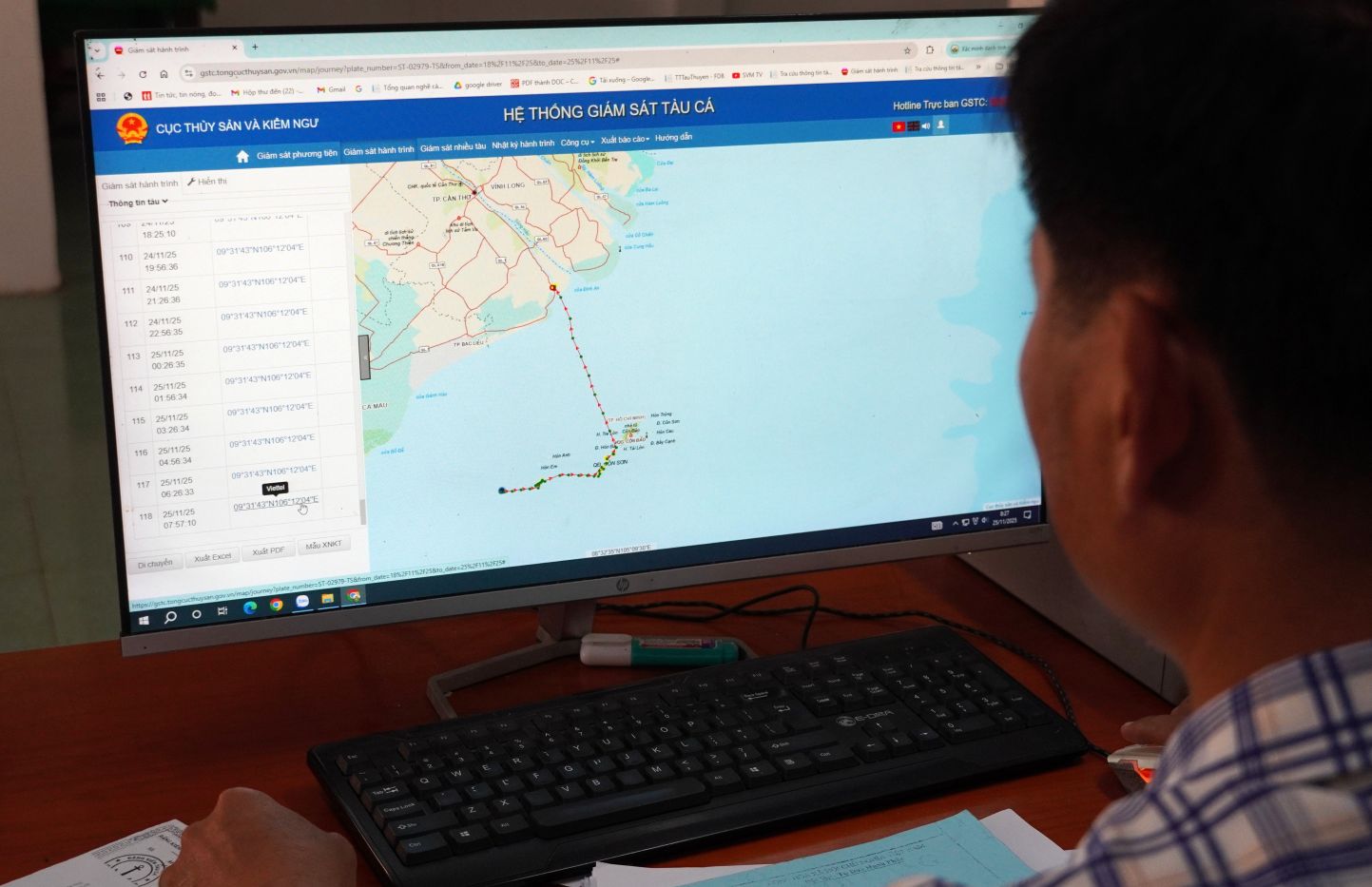Tightening departure procedures
On the morning of November 25, at Tran De Fishing Port (Can Tho City), the atmosphere of preparation for the year-end sea trip took place urgently. The crew members are busy checking fishing nets, feeding, and arranging food for long fishing days at sea.
At the IUU Representative Office, fisherman Vo Hoang Anh is completing the procedures to depart. He said that previously, it was only necessary to make documents at the Border Control Station, but since the application of the regulation against illegal, unreported and unregulated (IUU) fishing, the dossier and process have been more strict.
"At first, I was worried when I heard the new regulations, but now I am used to it. If you do the right thing, you will feel more secure when traveling at sea, everything is clear and transparent," said Mr. Hoang Anh.

Like Mr. Hoang Anh, on ships preparing to leave the port, fishermen are proficient in preparing fishing licenses, crew handbooks, fishing logs and opening journey monitoring devices right from the port.
Fisherman Nguyen Hoang Tam said that every trip to sea, he carefully checks the machinery, the VMS equipment must be turned on continuously 24/7, and the documents are arranged in a tight manner to be ready when the inspection force requires. "Now everyone is used to the regulations. If I do the right thing, I will feel secure and not worry about being fined," he said.
A representative of the IUU Representative Office at Tran De Fishing Port (Can Tho City) said that the forces here are on duty 24/7 to support fishermen in completing procedures. "All day and night, the people's ships must be present at any time to support. The most important thing is not to let local ships violate foreign waters. That is also our responsibility in the joint efforts to remove the "yellow card" from the EC," the officer said.
Closely monitor fishing vessels at sea
The Department of Fisheries and Fisheries Control of Can Tho City said that the professional forces have established a Journey Monitoring Team (VMS) to monitor fishing vessels at sea. The 24/7 duty team exploits all system functions to detect and promptly warn ships that are disconnected or cross the permitted boundary, and coordinate with law enforcement forces at sea and where the ships dock to handle according to regulations.
Through the system, officers directly contact ship owners and captains when detecting a lost signal, request a coordinate report and immediately fix it. Thanks to maintaining this process, from the beginning of 2024 to now, Can Tho has not recorded any fishing vessels 24 meters or more long that have lost connection for more than 6 hours without reporting, nor have any vessels lost signal for more than 10 days. At the same time, no ship crosses the border into foreign waters.

According to the Department of Agriculture and Environment of Can Tho City, as of November 14, all 784 fishing vessels have been managed on the national databases VNFishbase and VNeID, with a total capacity of 207,631 CV. Of which, 341 vessels with a length of 15 meters or more and 47 vessels serving fishing logistics have installed voyage monitoring devices (VMS) and displayed them on the system of the Department of Fisheries and Fisheries Control. All 784 ships have valid exploitation licenses.
The city has sealed 28 unqualified ships, requested them to anchor in the designated area, signed a commitment not to operate and monitored them with images, locations, and coordinates. The relevant agencies also guided the localization, cancellation of 26 vessel registration and supported the purchase and sale, re-registering 32 vessels to ensure transparency.
For ships that have been on the shore for a long time but do not meet the inspection requirements, the authorities are required to anchor at storm shelters or fishing ports managed by the border guards, and closely monitor to prevent the risk of violations.











